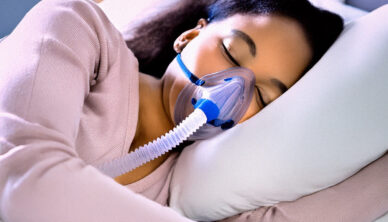Contents
Sleep Apnea & Snoring

Loud snoring and sleep disturbances could be signs of sleep apnea, a serious condition affecting breathing during sleep.
What is a Nasal Injury or Obstruction?
- Snoring occurs when airflow is partially obstructed, causing vibrations in the throat.
- Sleep Apnea is a condition where breathing repeatedly stops and starts during sleep, leading to poor oxygen levels and disrupted rest.
The most common type, Obstructive Sleep Apnea (OSA), happens when the airway collapses or becomes blocked, often due to relaxed throat muscles.
Common Symptoms of Sleep Apnea & Snoring
- Loud, chronic snoring
- Gasping, choking, or pauses in breathing during sleep
- Daytime fatigue and excessive sleepiness
- Morning headaches or dry mouth
- Difficulty concentrating or memory problems
- Irritability or mood changes
- High blood pressure or increased heart risks
If left untreated, sleep apnea can lead to serious health complications, including hypertension, heart disease, stroke, and diabetes.
Potential Causes of Nasal Sleep Apnea & Snoring
- Obesity & Excess Weight – Fat deposits around the neck can block the airway.
- Anatomical Factors – A large tongue, tonsils, or soft palate may obstruct breathing.
- Nasal Congestion & Blockage – Allergies, sinus infections, or a deviated septum.
- Sleeping Position – Lying on the back increases the risk of airway collapse.
- Alcohol & Sedatives – Relax throat muscles, increasing airway blockage.
- Smoking – Increases inflammation and fluid retention in the airway.
- Genetics & Family History – A hereditary factor in airway structure.
Diagnosis
- Sleep Studies (Polysomnography) – Overnight monitoring of breathing, oxygen levels, and sleep patterns.
- Home Sleep Apnea Testing – Convenient at-home diagnosis using advanced sleep monitors.
- Nasal Endoscopy & Airway Examination – Identifying structural blockages.
- Lung & Oxygen Level Assessment – Checking for oxygen deprivation during sleep.
Treatment Options
Non-Surgical Treatments
- Lifestyle Modifications – Weight loss, reducing alcohol intake, and positional therapy.
- Continuous Positive Airway Pressure (CPAP) Therapy – A mask delivering constant airflow to keep airways open.
- Oral Appliance Therapy – A custom-made mouthguard repositioning the jaw and tongue.
- Nasal Decongestants & Allergy Treatment – Addressing nasal blockages that worsen snoring.
Surgical Treatments (For Severe Cases)
- Uvulopalatopharyngoplasty (UPPP) – Removing excess throat tissue to widen the airway.
- Tonsillectomy & Adenoid Removal – Treating enlarged tonsils blocking airflow.
- Nasal Surgery (Septoplasty, Turbinate Reduction) – Correcting nasal obstructions.
- Hypoglossal Nerve Stimulation – A pacemaker-like device stimulating throat muscles to prevent collapse.
Arranging To Visit A Private GP
If you are experiencing disruptive or bothersome sleeping disorders, schedule an appointment with Royal Buckinghamshire Hospital for expert evaluation and treatment.. Make an appointment with one of our private GPs who can refer you to our specialist ENT clinic. Appointments are available to everyone and can often be booked for the same day. There is no need to be registered with our The Royal Buckinghamshire Hospital, or live locally.
If you have insurance which covers a GP visit, we can in most cases invoice the insurer directly. Where you are paying directly, the cost for a 30 minute consultation is £100.
Any additional costs will always be discussed.
1 April 2025
